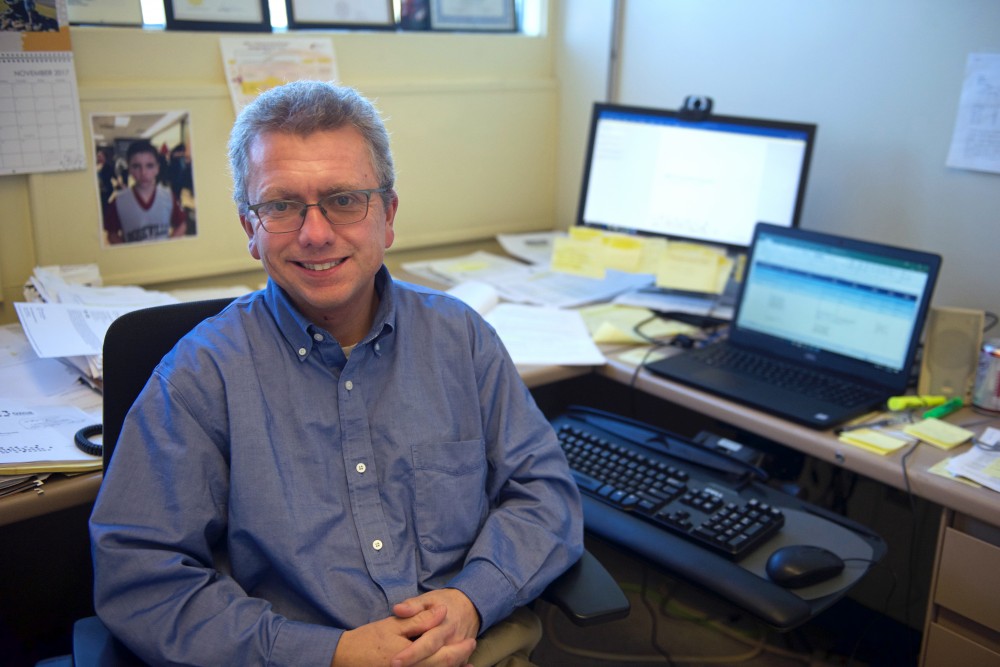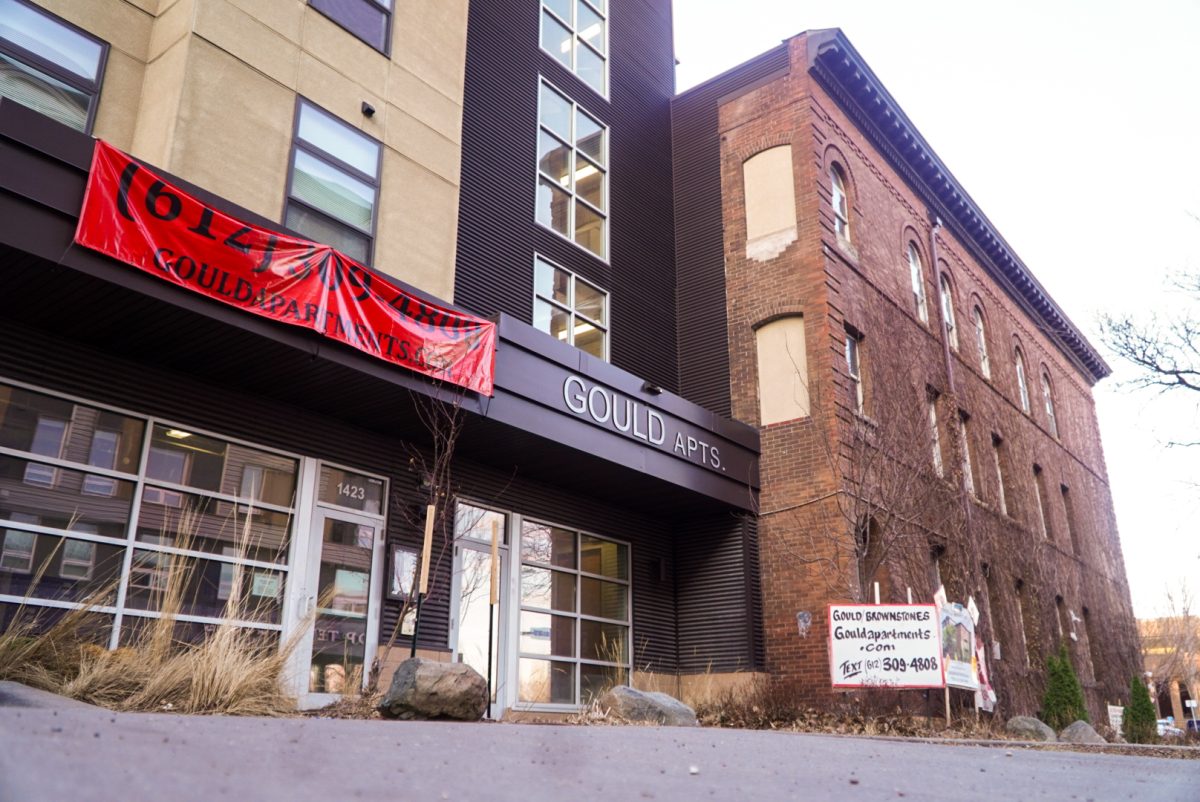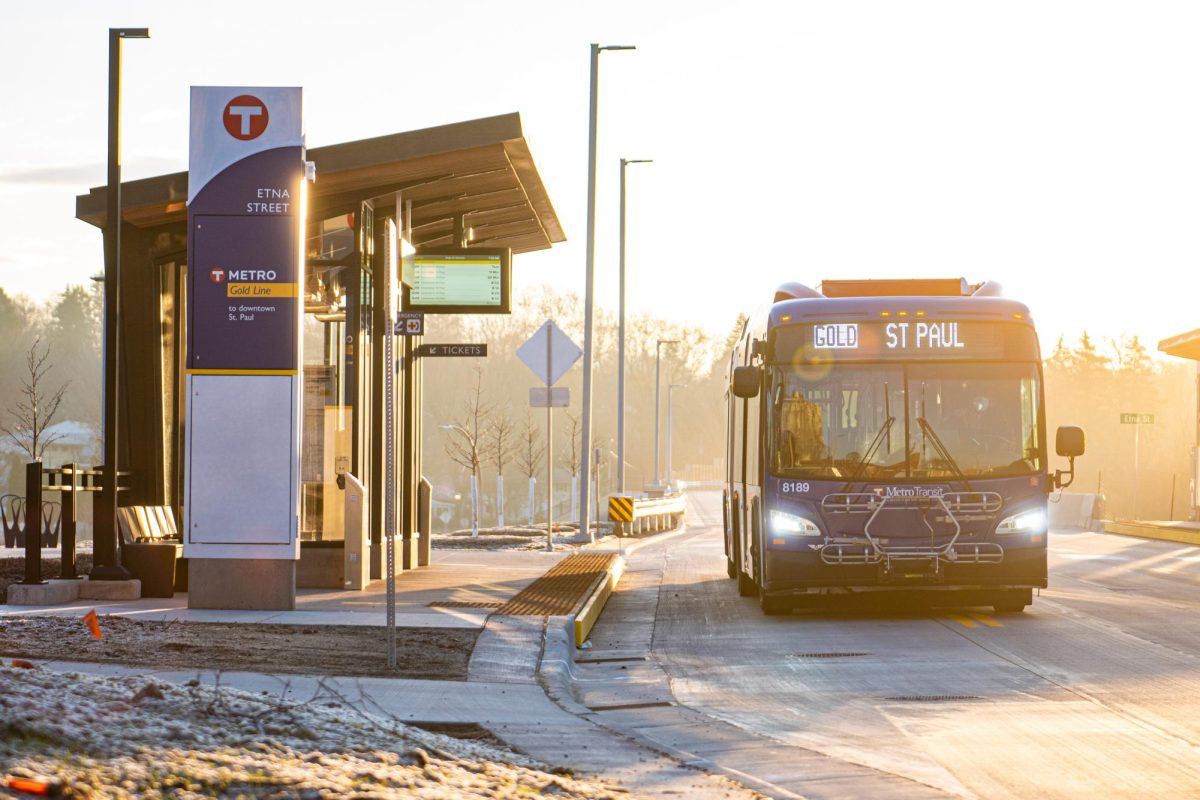A University of Minnesota researcher that will be sworn in to the Falcon Heights City Council in January believes his academic background will help him make an immediate policy impact.
Mark Miazga, a 14-year University research coordinator currently working in the Office of Measurement Services, defeated five other council hopefuls on Nov. 7. Miazga believes his professional career in data collection and survey research will help him secure outside funding for city operations and better serve constituents.
“A lot of what I do ultimately informs policy,” Miazga said. “I have a lot of ideas, from effective proposal writing to evaluating our relationship with the State Fair.”
Miazga consults with the University’s School of Public Health, Academic Health Center and Medical School on research data collection, evaluation, surveys and focus groups. His small team manages programs focused on adolescent nutrition, diet and exercise and other public health projects for internal research groups and state agencies.
“What it [has] taught me is the importance of public policy, the importance of making sure we have legislators who pay attention to the research that’s out there, and don’t have any self interest in mind,” Miazga said.
Miazga was previously a member of Falcon Heights’ environmental commission, where he authored three grants to help implement new environmentally-conscious technologies.
When Miazga takes his city council seat in January, he hopes to use his grant-writing experience to secure funding for local projects.
He said he wants to replace outdated equipment in the parks and make them more compliant with Americans with Disabilities Act requirements.
Though the city has limited resources, Miazga said officials can seek resident input on how to best fund the projects.
“This is the kind of community that has that spirit and we will make it happen,” he said.
Past associates of Miazga say his commitment to public service will be an asset to the council.
“When he worked for us, you could clearly see he was interested in public service,” said Rhonda Jones-Webb, a University professor at the School of Public Health who supervised a project with Miazga. “You really want policies that are informed by good data, and he’s a good person for making sure that happens.”
Todd Rockwood, a University School of Public Health associate professor, hired Miazga as a data researcher in the early-2000s.
“He coordinated a lot of moving parts,” Rockwood said. “He was very calm, and very methodical in how to solve a potentially chaotic work environment.”
Rockwood said having a successful data career at the University is difficult because of a lack of research structure around social sciences. Still, he said Miazga’s capabilities and values set him apart.
Miazga said he plans to attend a training workshop at the League of Minnesota Cities to learn the fundamentals of governance.
He said he’s excited to learn how to craft policies and get important items on the agenda.
“What I love about the spot that I’m in right now is that I’ve literally talked to hundreds of people, I can almost quantify issues,” Miazga said. “I think I’m in a good place to further engage the community.”
Miazga will continue serving in his role as a University research coordinator while on the council.








